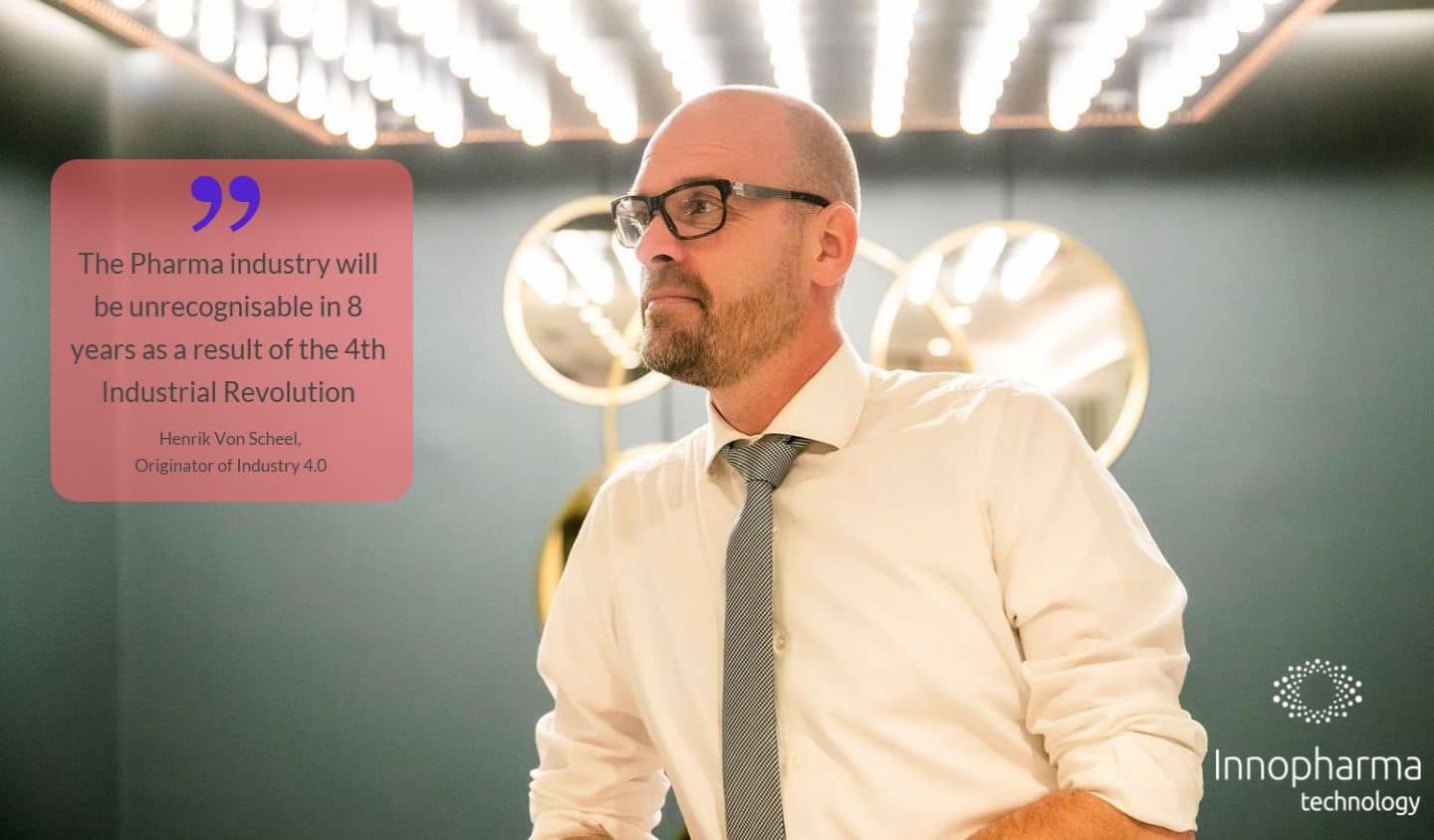Embracing Transformation

– by Dr. Sean Costello (Director, InnoGlobal Technology (formerly Innopharma Technology))
Last week at the Pharma 4.0 event in Dublin, I had the pleasure of listening to speaker Henrik Von Scheel, renowned as the ‘Father of Industry 4.0’ and the mastermind of the EU Digital Agenda. As a leading authority on strategy and competitiveness for industry and government alike, Henrik provided unparalleled insight into how Industry 4.0 represents, “the fusion of the physical, digital, and virtual worlds, set against a backdrop of 17 colliding trends ranging from AI to Neurotechnology”.
Henrik is highly respected in the boardrooms even though his message can, at times, seem contrarian to conventional thinking. But this is because he brings meaningful clarity to noise and encourages the need to apply different thinking and toolsets.
Manufacturers need to rethink the entire value chain. There are only six different ways to model your manufacturing operations: revenue, value, cost, performance, service, and operating model.
– Henrik Von Scheel
His talk was great as he described conceptually how Industry 4.0 would deliver opportunities for growth and innovation, reset the competitive landscape, rethink new service models and redefine the next leap in productivity that transforms operational excellence. However, Henrik did have a word of warning that because 4.0 is disruptive if you don’t change, you won’t survive. Henrik described how 4.0 is coming in waves and that the longer you leave embracing transformation, then the harder it will be to stay competitive. Having worked in both start-up, medium, and multinational enterprises, I know how hard this is when corporates are cost-competitive. “Normally businesses have three to five years to react to changes in their industry,” according to Henrik.
But when you have so many simultaneous changes occurring, it becomes disruptive, and your ability to react becomes more difficult. This is called the ‘change gap.’ If you are fighting on too many fronts, then you lose the fight.
– HV Scheel
How valuable is this message for Pharma 4.0?
I felt, the key goal of Henrik’s task was to drive home the message that Industry 4.0 changing at a rate and pace never seen previously. He provided several compelling proof points to this effect. To contend with such constant change, Henrik’s big advice was to master the discipline of ‘innovation’ (i.e. developing your business) and ‘transformation’ (i.e., running your business), and to “think functionally, act strategically.”
For Pharma 4.0, this is all about the transformation of cyber-physical production systems to connect the physical and digital world of production, creating a more flexible, resource-efficient, customised way of manufacturing. It is the ‘Smart Factory’ which leverages the Internet of things (IoT) and where the integrated analysis of data and collaboration forms critical value drivers.
There is evidence of such concepts already manifesting in the real world as different parts of the pharma value chain start to embrace AI and other 4.0 technologies. At InnoGlobal Technology (formerly Innopharma Technology), we have embraced the 4.0 revolution; by connecting process equipment and sensors using IoT approach to enable cloud-based analytics, self-guided process control, and Smart workflows for accelerated process development. I am looking forward to being a part of making this space grow.
I recall Henrik’s parting words of encouragement. There is absolutely nothing to fear from these technological changes because people will always be at the center of technology. As he put more strongly……
People are a summary of competencies – and competencies are dependent on investing in skills. People are the means by which businesses adapt to the changes represented by Industry 4.0.
– HV Scheel

